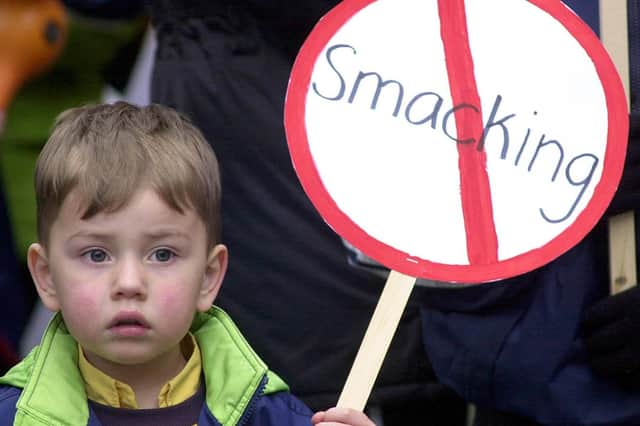Campaigners call for law change in NI to outlaw the smacking of children


The current law in England and Northern Ireland has created “grey areas” which mean there is sometimes a defence to physical punishment, the Royal College of Paediatrics and Child Health (RCPCH) said.
Wales made any type of corporal punishment, including smacking, hitting, slapping and shaking, illegal in March 2022, while Scotland had already introduced a similar ban in November 2020.
Advertisement
Hide AdAdvertisement
Hide AdThe RCPCH said amendments to the Children Act 2004 for England and the Law Reform Order 2006 for Northern Ireland “to remove the 'reasonable punishment' defence from all UK law are long overdue”.
Its report on the issue argued that, ahead of a general election, this was a time for all political parties to “make meaningful commitments on this important children's rights issue”.
Professor Andrew Rowland, a consultant paediatrician and RCPCH officer for child protection, said: “The laws around physical punishment as they stand are unjust and dangerously vague.
“They create a grey area in which some forms of physical punishment may be lawful, and some are not.”
Advertisement
Hide AdAdvertisement
Hide AdHe said he was “regularly faced with situations where it is alleged that physical punishment has been used against a child” but that the “vague nature of the laws make it extremely challenging” to talk to families about what the rules are and therefore more difficult to talk about the best interests of their children.
He added: “This lack of legislative clarity can even add an extra layer of complexity when trying to identify cases of child abuse.”
He said society's views on punishment had changed over time, with a majority of adults agreeing that physical punishment of children was unacceptable. Physical punishment could also result in a child having the learned belief that violence was accepted and this could “lead to further instances of violence and harm later in life”, he added.
Prof Rowland said: “There must be no grey areas when it comes to safeguarding children. Changing the laws in England and Northern Ireland will give us absolute clarity and ensure there are no instances where it is acceptable or lawful to smack a child.”
Advertisement
Hide AdAdvertisement
Hide AdBess Herbert, advocacy specialist at international campaigning organisation End Corporal Punishment, said: “I hope that England and Northern Ireland will soon join the ever-growing number of countries that have taken this fundamental step in protecting children, upholding their rights, and supporting healthy and positive child raising.”
The NSPCC’s Joanna Barrett said children in England and Northern Ireland “continue to be exposed to a legal loophole that can undermine their basic right to protection under the guise of ‘reasonable chastisement’”.
She added: “As this timely report from child health experts at RCPCH shows, hitting a child can have harmful and lasting consequences.”
A spokesperson for the Northern Ireland Department of Health said: “Any decision to amend the legal position as set out in the Law Reform (Miscellaneous Provisions) (Northern Ireland) Order 2006 will require the agreement of the Northern Ireland Executive.
“The Department of Health continues to play an important role in supporting parents and carers of children and young people and in particular to promote positive parenting behaviours.”
Comment Guidelines
National World encourages reader discussion on our stories. User feedback, insights and back-and-forth exchanges add a rich layer of context to reporting. Please review our Community Guidelines before commenting.